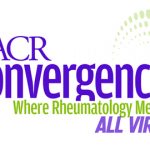Although reporters are not required to send a copy of the article before it is published to the ACR/ARHP or the Experts on Call source, the ACR recommends experts offer to fact check their quotes, and the article, if the publication’s policies permit it. “Often, reporters will volunteer to send their story for fact checking, or at a minimum, share quotes if asked. We find the key to this is understanding that reporters are on deadline, ensuring them that you will provide a quick review once the piece is received and to follow through on that promise,” Ms. Givens says. “Rheumatic diseases are complex topics to write about, and in most cases, reporters appreciate knowing they have accurately captured the views of the physician or health professional they interviewed.”
Realizing the sensitivity of deadlines for reporters is key for members who may want to participate in Experts on Call, Ms. Givens says. Often, sources are asked to provide commentary or share their expert knowledge within a 24- to 48-hour time frame.
Sources identified through Experts on Call are not ACR/ARHP spokespeople, Ms. Givens says. “They serve as educational resources on subjects they have expressed knowledge of via the questionnaire, and they are quoted as being from their respective organizations and institutions,” she explains. When a request related to an ACR/ARHP initiative or position on a topic comes in, staff members work with the appropriate committee to formulate a response or schedule an interview with a member of ACR/ARHP leadership.
What Experts Have to Say
Rheumatologists who participate in Experts on Call say they find it rewarding to educate the media and the general public about rheumatology.
“I was asked, and it sounded interesting to talk to writers and the media,” says Scott Zashin, MD, FACP, FACR, medical director and clinical professor, University of Texas Southwestern Medical School, Dallas. Dr. Zashin has been part of the program for 10 years; he speaks with journalists about once a quarter for stories. He is commonly interviewed about diet and nonpharmaceutical treatments.
Bharat Kumar, MD, MME, FACP, associate director of the rheumatology fellowship program in the Division of Immunology at the University of Iowa Hospitals and Clinics, Iowa City, signed up because he believes rheumatologists must work as patient advocates. “Advocacy means not only fighting for an individual patient’s rights and privileges in the clinic, but also raising the public’s level of knowledge and familiarity with rheumatology. Every time I’m put on the record, I feel like I’m advancing the conversation.”



